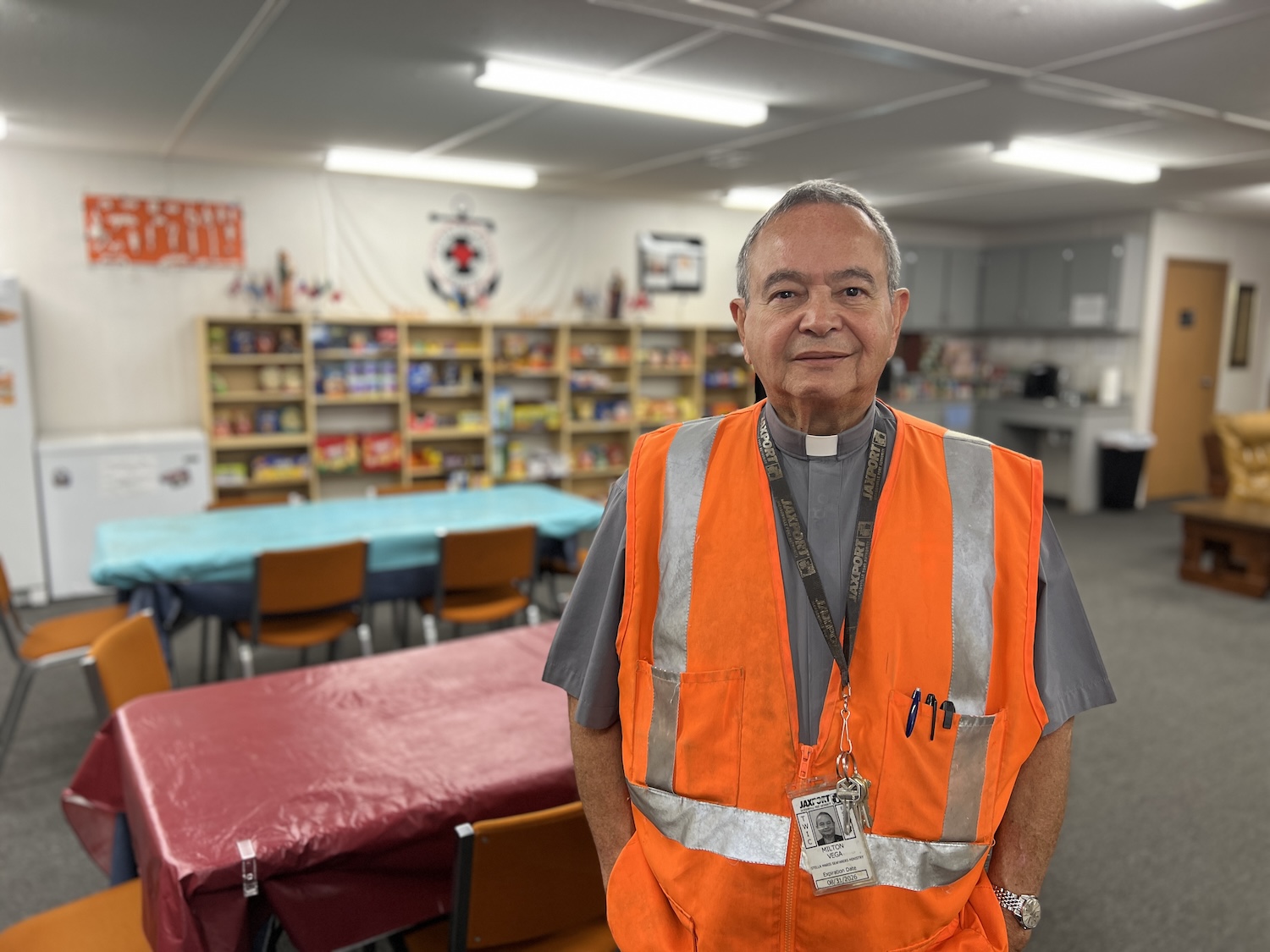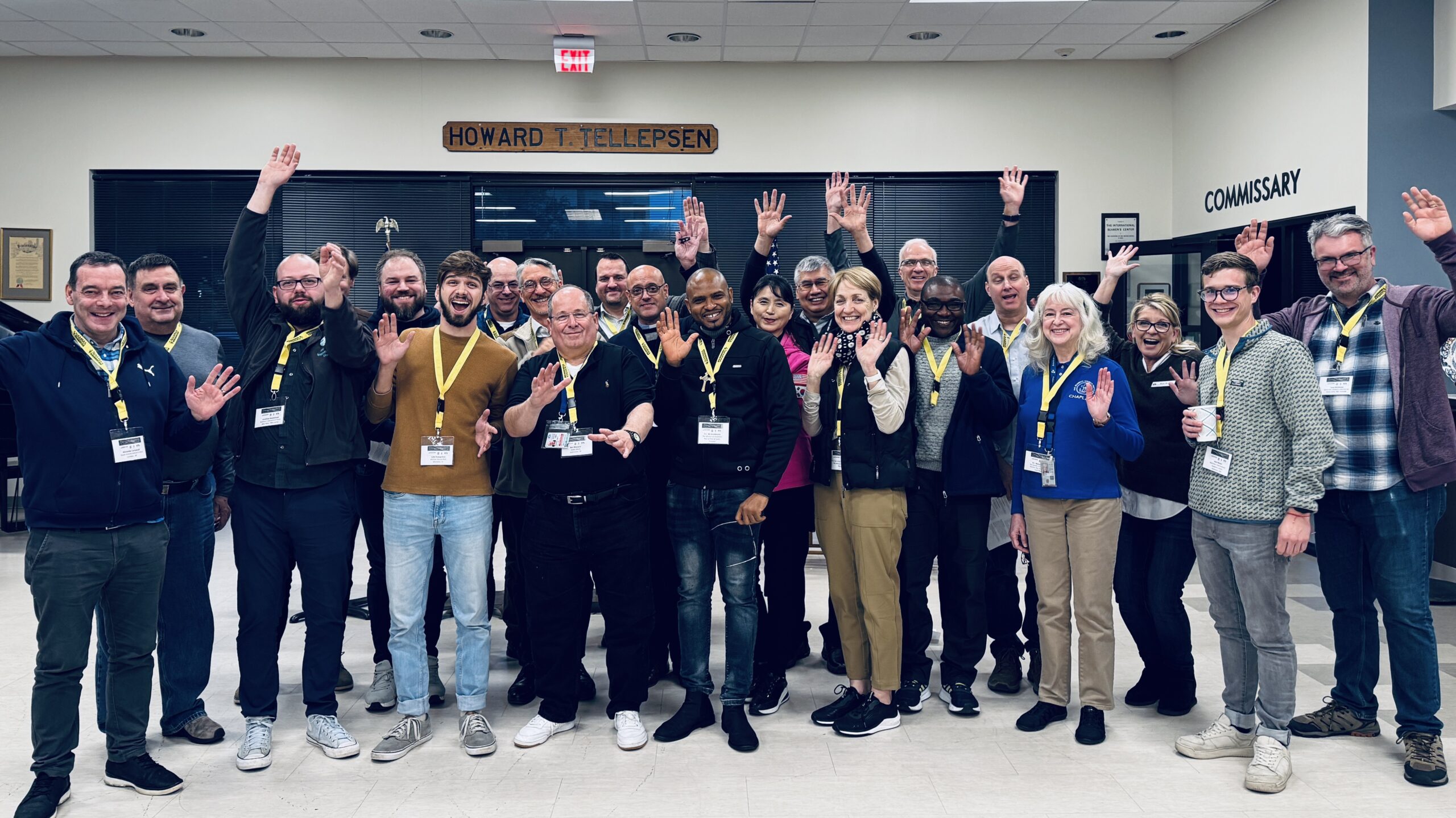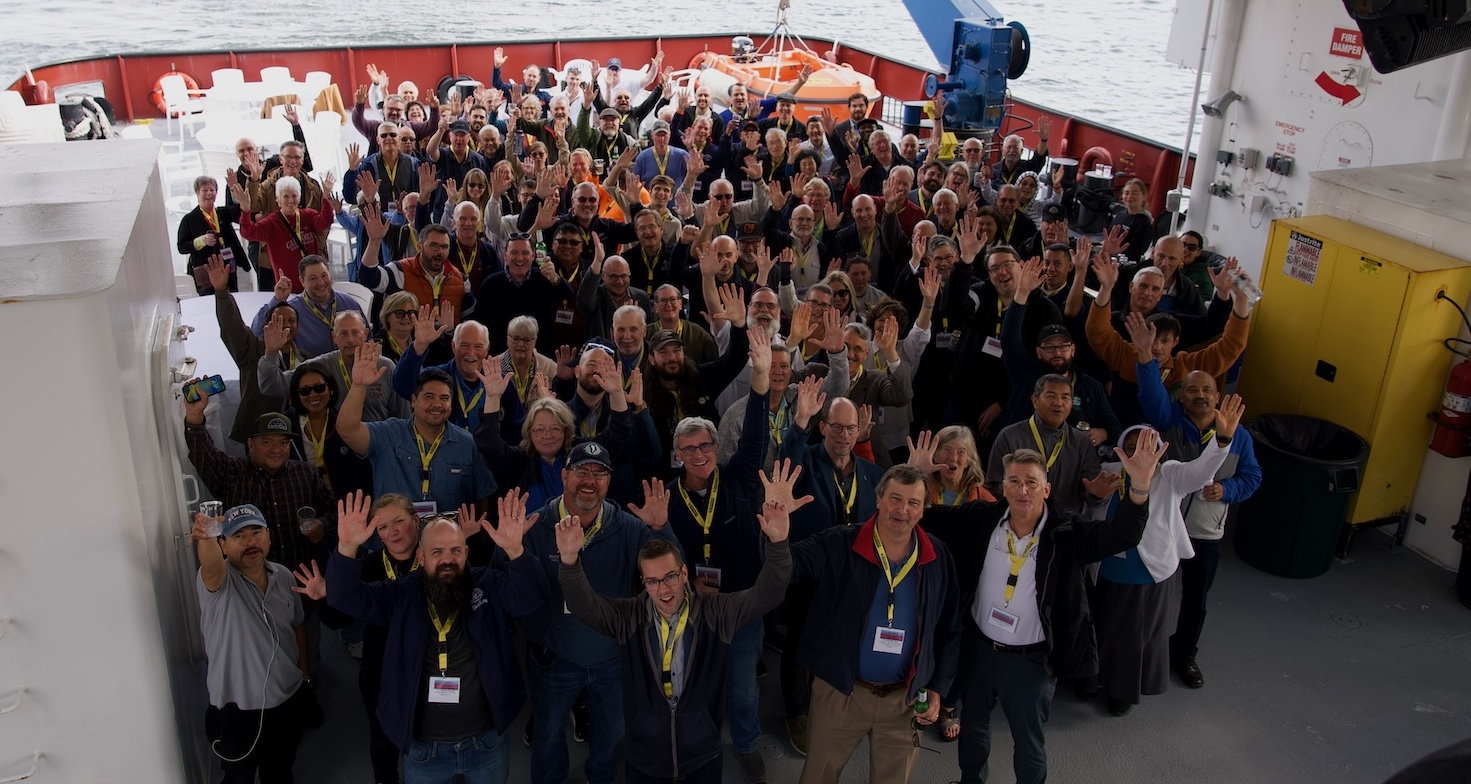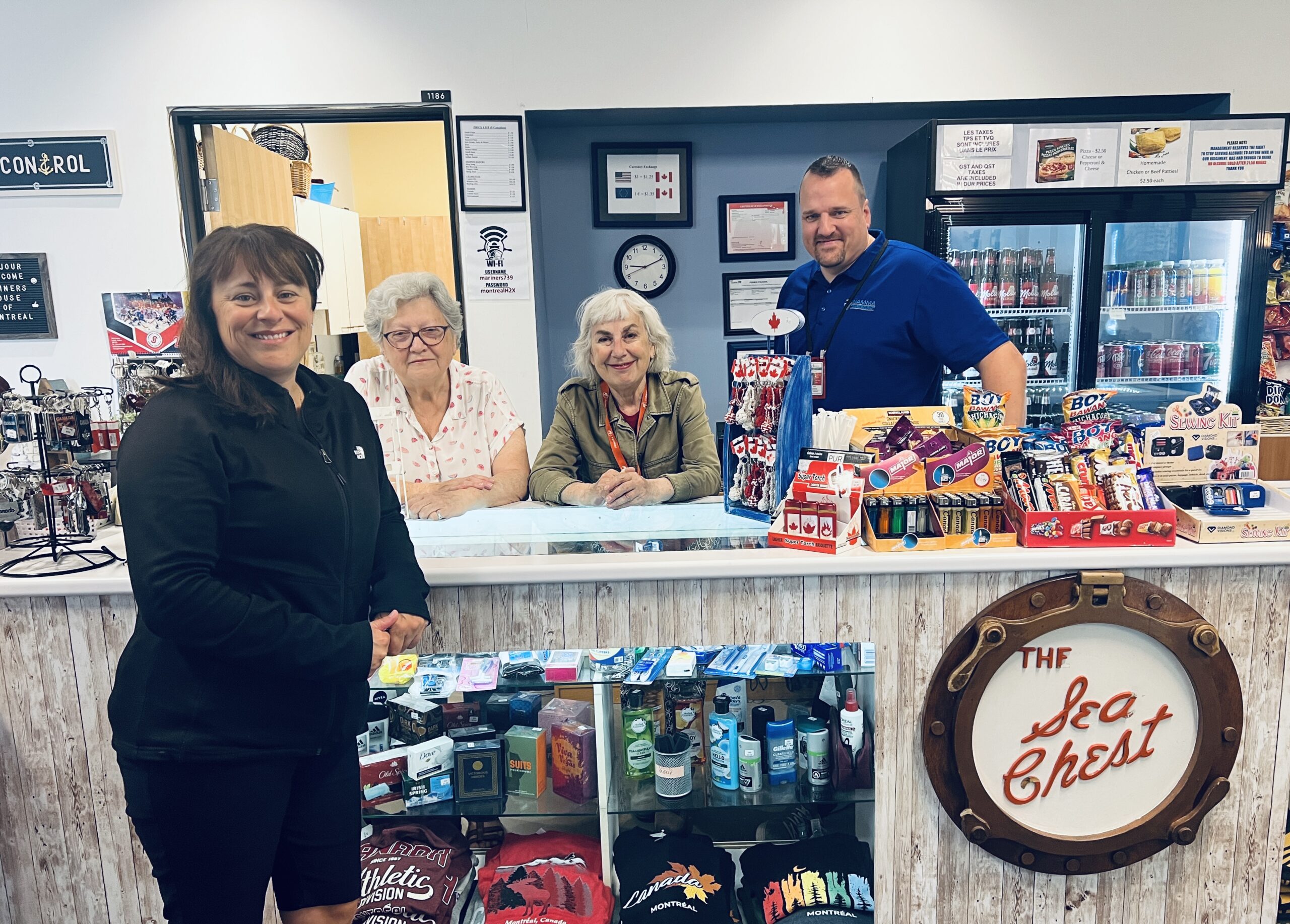The MARE Report: What is the Stella Maris ministry in Jacksonville?
Dcn. Milton Vega: Well, we are the seafarers’ mission, and we operate in two seaports [in Jacksonville], Tallyrand and Blount Island. But those are just the two sites where I have mission centers. Besides that, there are many other ports that we have jurisdiction over in my duties as a chaplain, or “port deacon” as they like to call me in my Catholic tradition. So yeah, we have quite a few duties to perform here, and given the growth of this city and the future vision for expansion, there’s plenty of room for us to grow. We just need human resources so we can actually do it.
The MARE Report: How did you get involved with the seafarers’ ministry?
Dcn. Milton Vega: It was one of those chance encounters where I ran into one of the former port deacons who used to be a deacon at the parish where I worship here in Jacksonville. And he asked me if I was willing to volunteer, and at the time, I was looking for other opportunities. So, I passed that up. But a little while later, one of those opportunities was with Catholic Charities, Jacksonville. Catholic Charities at the time had the responsibility for the Apostleship of the Sea—now we call it Stella Maris. When I got associated with them, they asked me if I knew the deacon, and I said yes, he’s a close friend of mine. They said, “Good, they need volunteers. Can you assist them?” Well, it was like, I think I heard it, I think God is speaking to me. I heard it from two different sides now that they need help.
So, I began as a volunteer, and for the first four years between 2010 and the end of 2014, I was strictly a volunteer for this, working mostly late in the evenings and sometimes weekends while still retaining my career during the day. But in 2014, things changed. I was looking for a job opportunity because I had been doing contract work and that wasn’t very fruitful. I needed to have a steady income. The opportunity came for me to assume the responsibility of being the director of the ministry. I wasn’t called a chaplain or deacon because I was not yet a deacon. I was still a lay person when I took over the ministry. My official title to this day is still Director of the Stella Maris Ministry because we renamed the ministry two years ago. It was one of those chance opportunities, something that comes to you unexpectedly. But it has turned into quite a fruitful experience for me, almost going on 10 years now.
The MARE Report: Why is it important that maritime ministry is not just about religious conversations but also acts of service?
Dcn. Milton Vega: As I’ve come to understand the maritime ministry and have learned so much about it, and having listened to seminars with some of the associations that I have gotten involved with like NAMMA and the Apostleship of the Sea-USA (at one time I was an officer in AOS-USA), I got training. And I also know firsthand encounters with the people that have told me about the injustices that sometimes they have had to endure. I visited a vessel years ago where they had been fed only rice with chicken broth for 30 days. Another vessel that was arrested by agencies in the maritime industry and taken over had gone six months without receiving any compensation. Then I realized that there were a lot of injustices and abuses happening. But getting to know the mariners and how they live off of contracts, they serve for nine months in which they are separated from their families, 90% of their time they’re floating in water across the oceans, carrying the goods and services that we receive here or that we export from our lands to other countries. Their life is at sea. There is not exactly a place where you could step off to have a day off. So technically their work schedules sometimes are four hours on, four hours off or work 12 hours straight and rest for 12. They have a variety of shifts to compensate for the needs of those vessels. And depending on what vessel you visit, the needs are different. We visit car carriers, have been on other cargo ships, etc.
The experiences are different. The realities are different. Who owns the vessels creates the work environment that they have to endure. The thing is that they’re bound to this contract and there are a lot of restrictions imposed on them. The days of mariners getting off a vessel and having the old mystique about the “drunken sailors” are no longer true. They are not allowed to go off and come back drunk or something like that. That’s something that isn’t heard of. They have to be very well disciplined. They have to be very responsible and they have to meet the demands of their contracts or otherwise they get sent home.
Now that may not sound so bad except that we hear this saying all the time, that ‘it takes a village’ sometimes. It is for some people, but not all. And those are the things that you discover once you get involved with this ministry. And you realize it’s a place for me to really provide counsel to spiritually uplift some people, talk to them, befriend them because that’s what they need. They need a friend away from home. They need somebody to give them words of encouragement.
That’s why it is so important to be part of this ministry. There are opportunities to do what I’m expected to do as a deacon of the church. But that’s not my primary function. Mine is outreach, making sure that people feel welcome when they come into our shores, that they are visiting and they have somebody that they could rely on and trust them, especially providing them transportation, the safe passage to their destination, and ensuring that they get picked up. So that’s all part of our duties on a day-to-day basis, visiting on board vessels. Not all of the members of a crew may be there; it might be as high as 32 or 22, I don’t know because they keep dropping the number of personnel on vessels due to automation. But not all of them get shore leave. Sometimes when they come in here, well, the captain and the agents have to pay for shore leave passes. So maybe out of a crew of 22, let’s say six get to get off. The vessels on a set visit to Jacksonville, then they may stop in Savannah or they may stop on the way down to Port Everglades or Miami or even New Orleans. And then another group of people get to get off. But it’s the reality, not everybody can leave a vessel because the vessel needs to run all the time to keep the engines running and all of that.
The MARE Report: In Pope St. John Paul II’s Motu Proprio, Stella Maris, it says that this ministry is to the ‘People of the Sea’. How do you minister to others besides just those strictly working on cargo ships?
Dcn. Milton Vega: The cargo ships and the car carriers and all, we deal with a whole variety of vessels coming into our ports. But there’s also the support personnel. People that have to offload the cargo, people that work in the port themselves. They need a place that they could come and relax. That’s why we have a couple of welcome centers that not only the mariners can visit, but the people working in the port can visit, relax, watch TV for their breaks or get some snacks and refreshments. Our presence as a hospitality center is a dimension of the ministry. I’ve been told this numerous times. [Port workers] thank me for us being present in the ports because it’s that important to them. Nothing is nearby. In a city like Jacksonville that’s so spread out. It’s quite difficult to go off [the Port], especially if you have a set time to offload a vessel to be able to have, let’s say an hour break at most. They have a lot of regulations; there are a lot of union regulations that they follow and the people that contract them, the agents, etc., and the companies that operate in this industry. You get to learn how the needs vary depending on who you’re dealing with on a day-to-day basis. Security people come here to visit us at our centers when they get an opportunity just to say hi, buy a drink for refreshments, to see if everything is going well. I have people from Homeland Security that I’ve gotten to know too, that come by and make sure that everything is well.
We serve more than just one type of personnel. Our maritime industry takes a whole lot of people, a variety of people to make it an effective industry. And by having our presence here is important because we could serve a variety of people, get to know a lot of different people, and get to know about the industry that otherwise I would’ve never learned anything about it.
The MARE Report: How do you encourage potential volunteers to join this ministry?
Dcn. Milton Vega: One of the things that I tell them is the joy of meeting different people, working with different people. You can realize that these other people may – if you think things are bad for you – sometimes they are the people that are in worse shape. It’s a charitable end because when we do the Christmas distribution, we are also giving, so we not only give of our time, but the people donate gifts for them. There’s a variety of things that turn this into a rewarding thing.
But yes, if you are a people person, this is your type of ministry because you get to know people from all over the world and you get to dialogue with different cultures. You learn different cultures. And if you’re curious about different customs, this is an opportunity to do so. I’m a kid from New York City, so it was always a multicultural city. I got exposed to that type of environment that I honestly missed for many years because the mixture of people in the south at one time was not as varied as it was in New York City. But gradually that dynamic is happening all over the world. People are on the go and on the move, and we can no longer just expect a specific type of person in one geographical area. We’re intermingling very well. And that’s one of the things that you see in the maritime industry. People from different cultures working together for a common purpose to do the job, to earn a living, and to an opportunity for us to befriend and get to know.
The MARE Report: Thank you.
Dcn. Milton Vega: You’re welcome.

Join NAMMA
NAMMA members receive a print copy of The MARE Report, NAMMA’s annual magazines for seafarer’s welfare professionals




